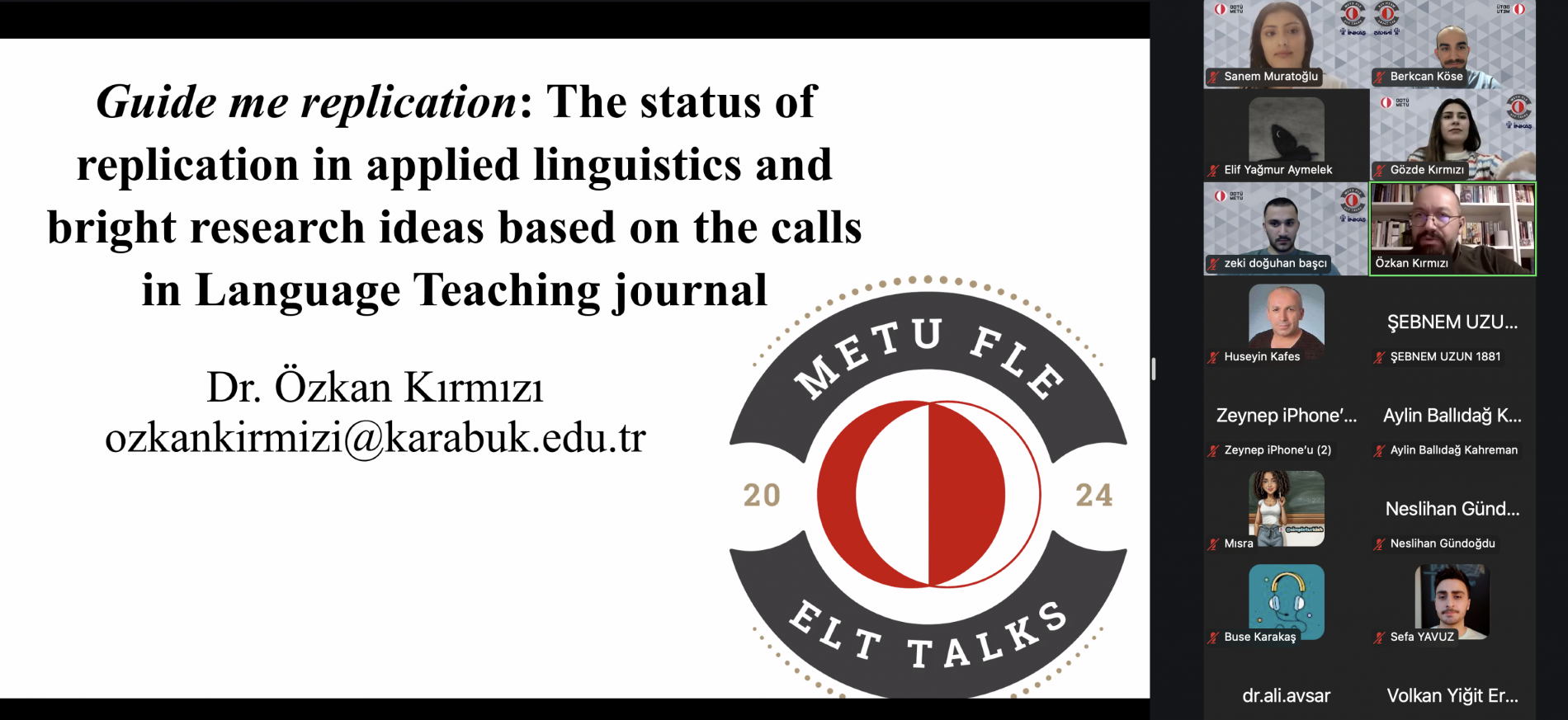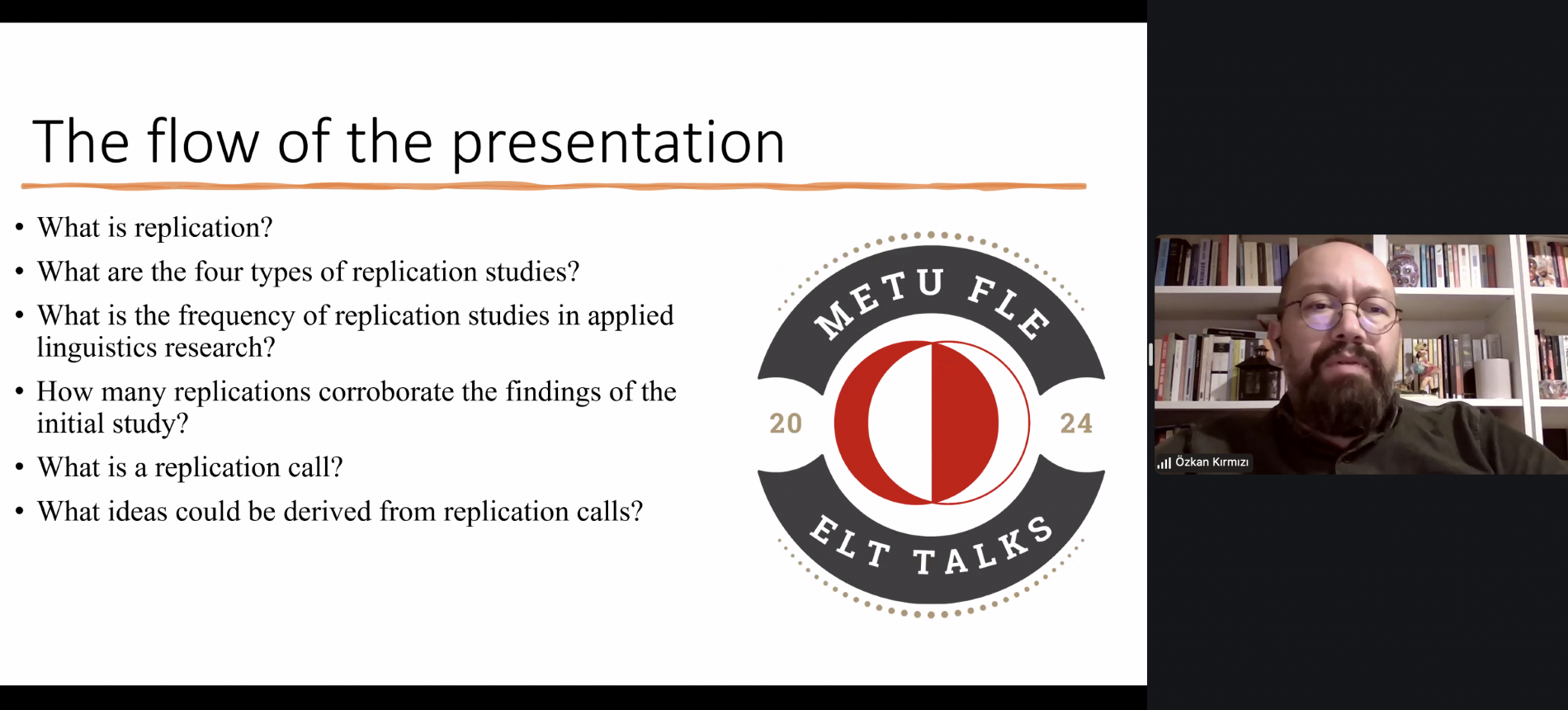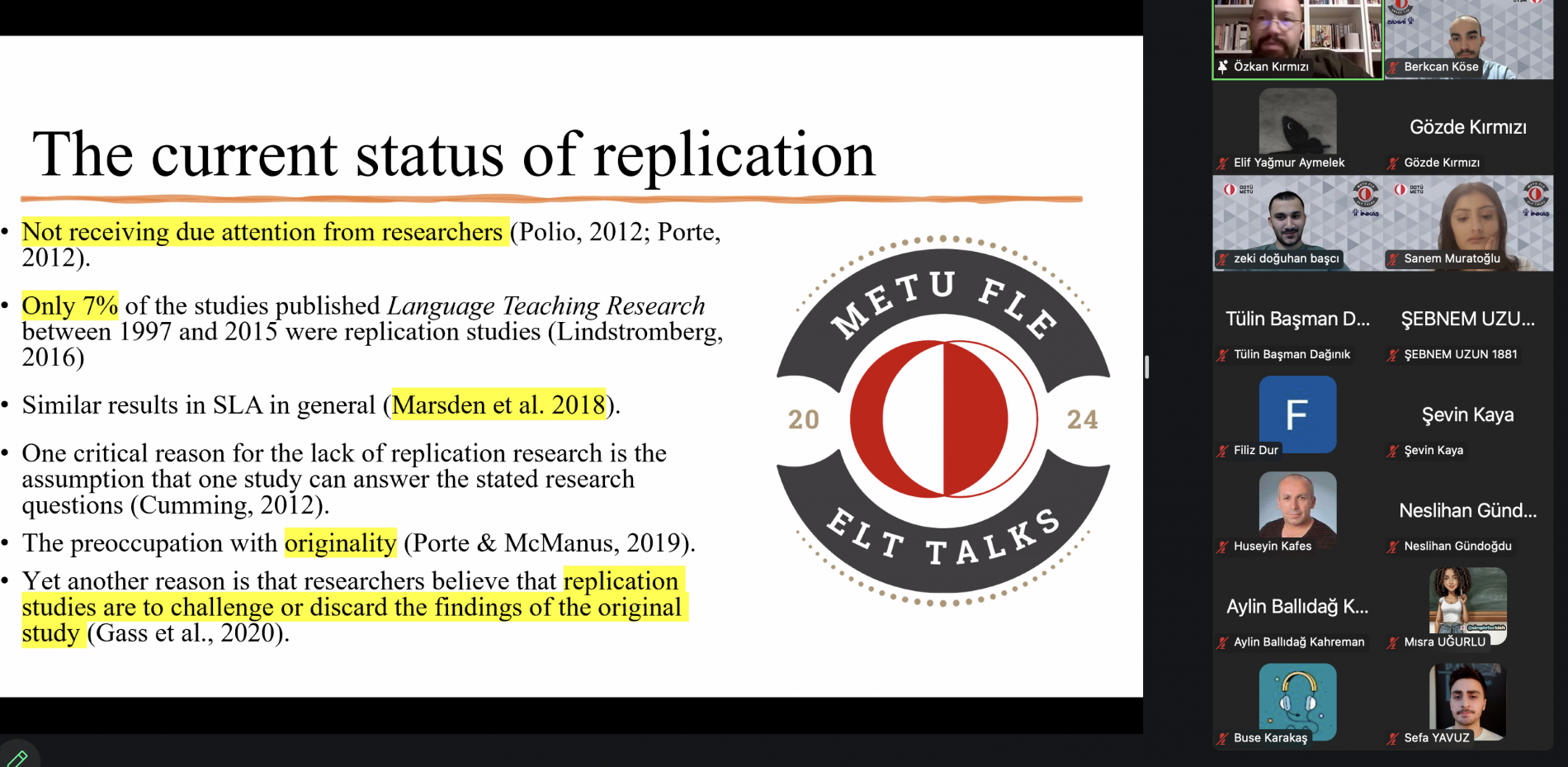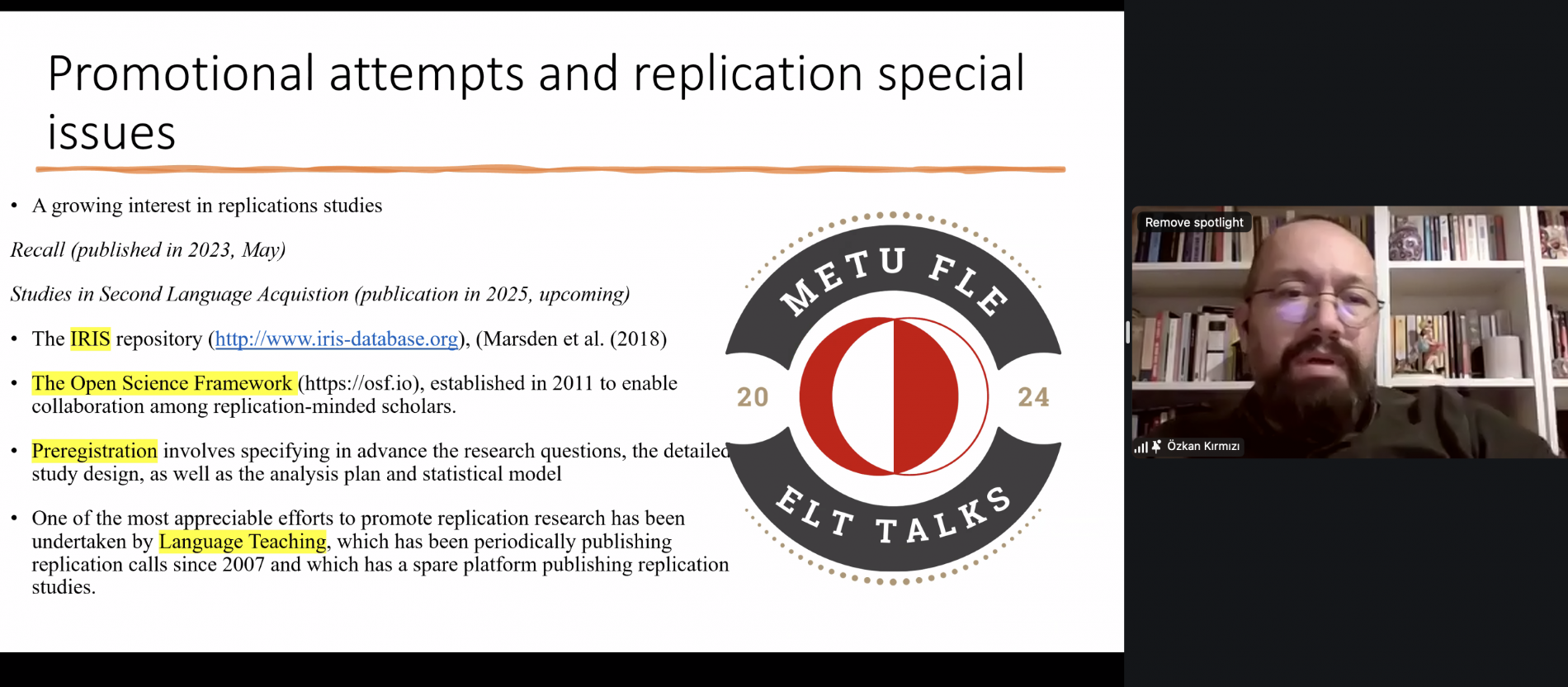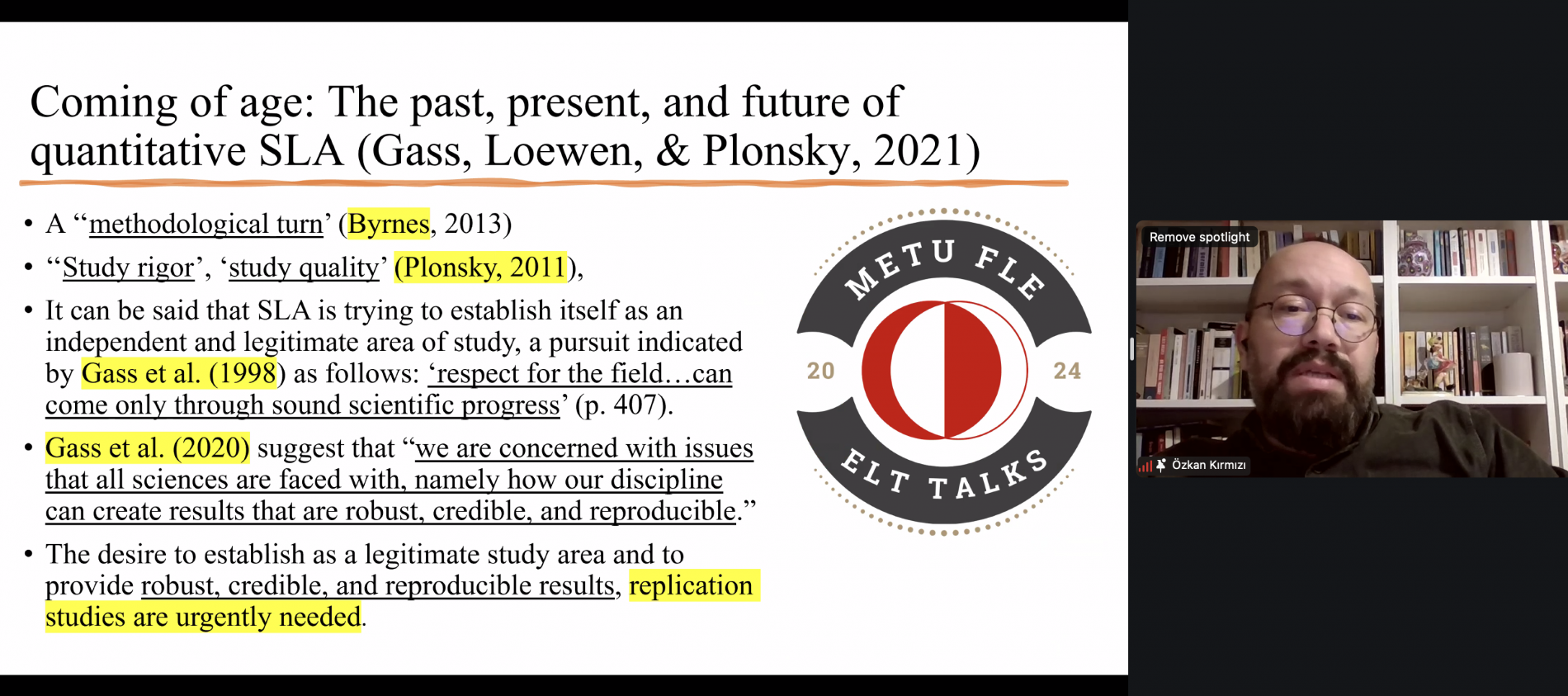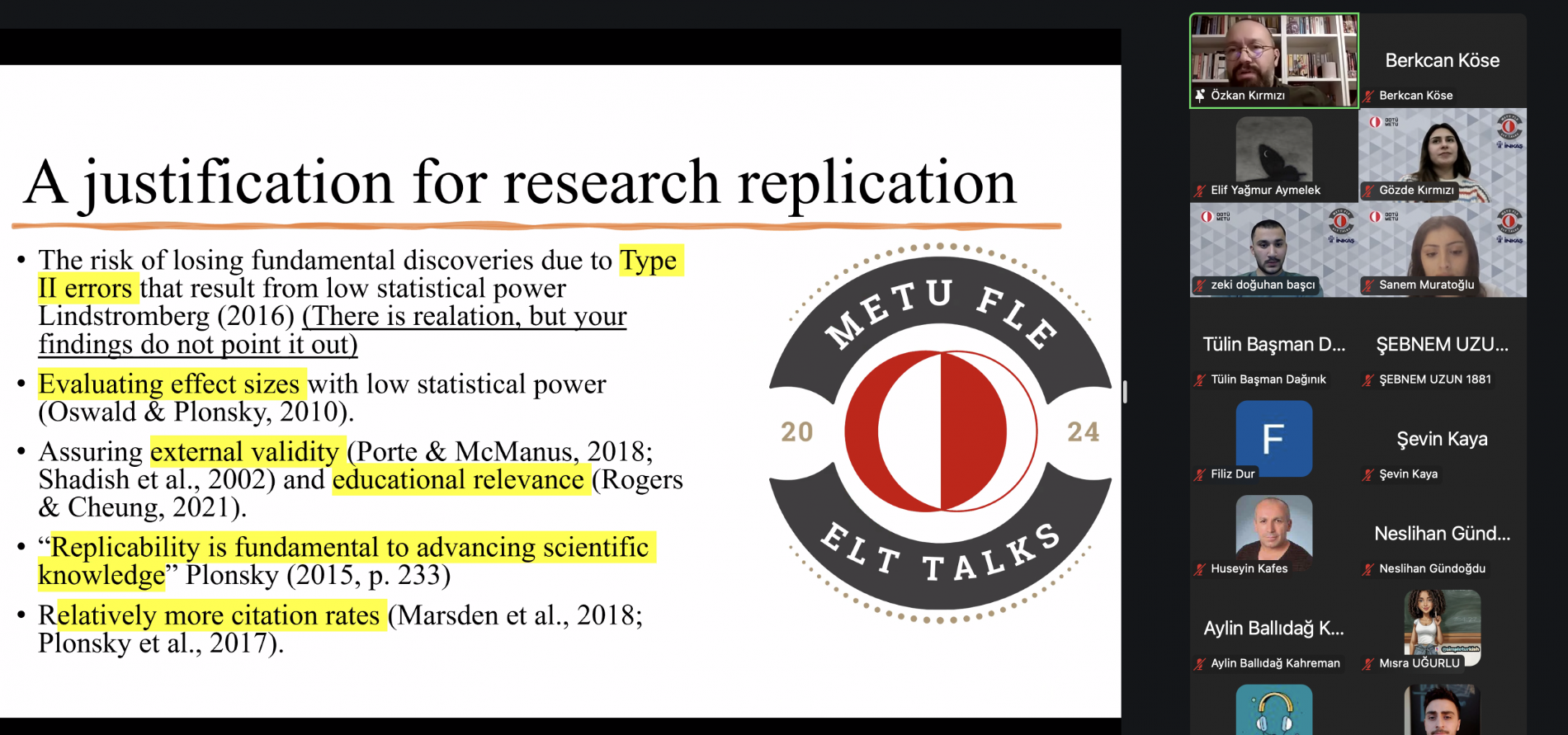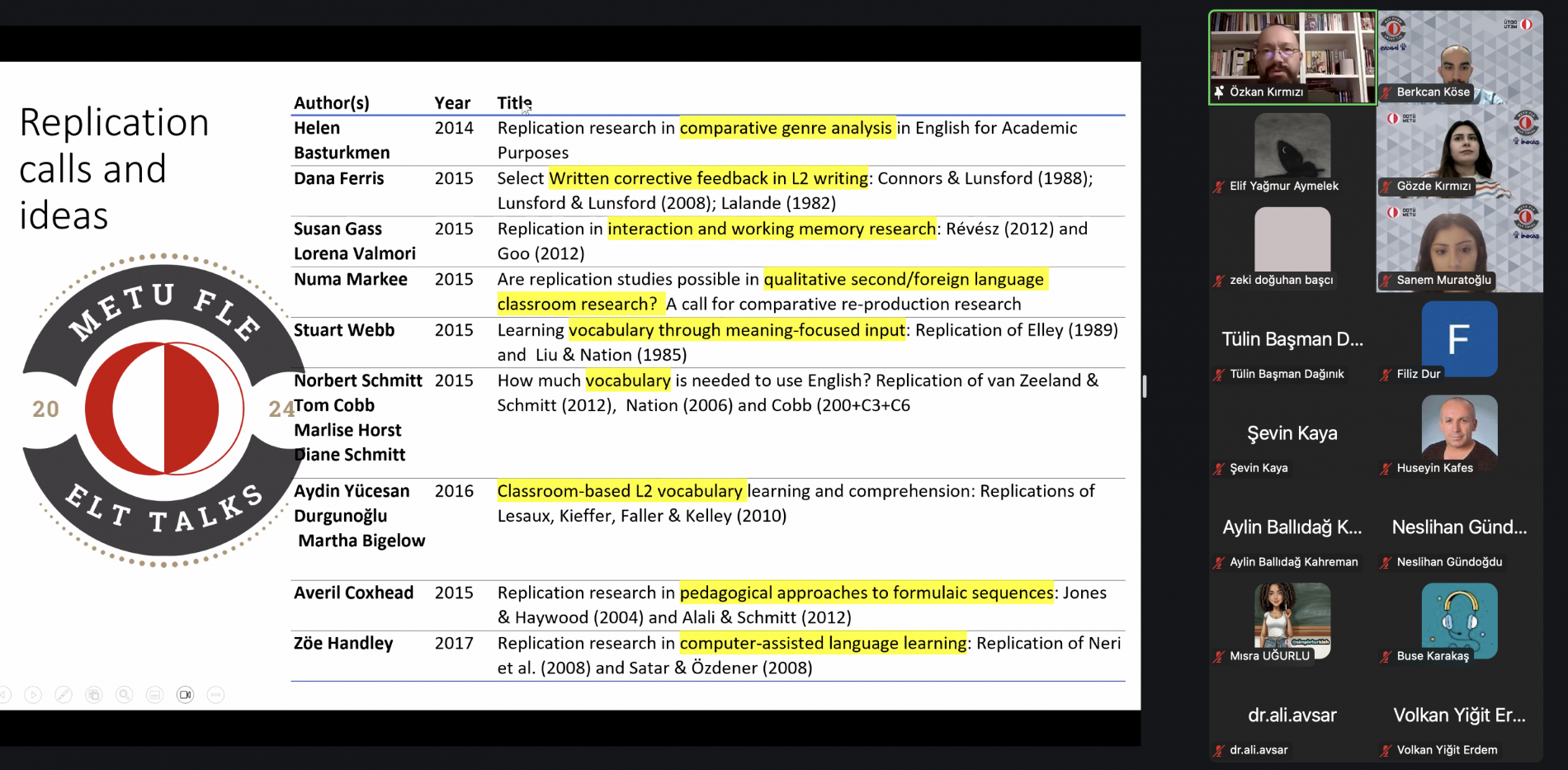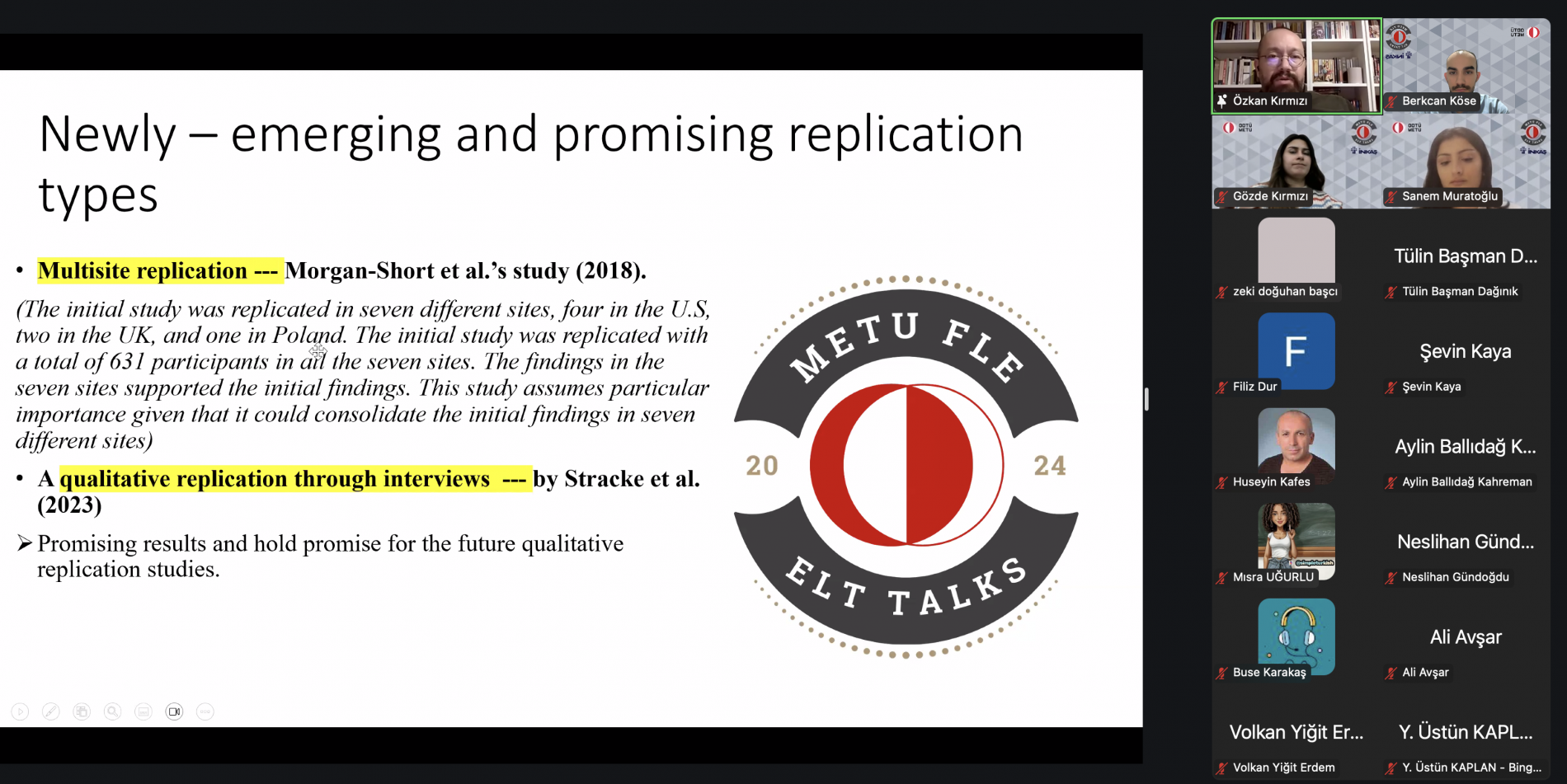METU FLE ELT Talks - Session 25 (Prof. Dr. Özkan Kırmızı)
Session notes:
"Science without replication is nothing more than the fruitless cataloguing of occult effects."
The quote above belongs to Karl Popper, who touches upon a thought-provoking aspect regarding replication research, which is the main topic for our 25th session of METU FLE ELT Talks. We had the honour to have Prof. Dr. Özkan Kırmızı with us to have a deep dive into the world of replication research. Our agenda included a definition, different types, the current frequency, some examples from actual research and much more.
To begin with a comprehensive introduction, replication can be defined as "conducting a research study again in either identical to its initial procedure or with minor adjustments to test the original findings." Prof. Dr. Kırmızı also pointed out the existing hesitation many scholars feel regarding replication studies. He noted that "most scholars are not even very much aware of what a replication study is," which also causes inevitable reluctance towards it. Dr. Kırmızı argued that this unfortunate hesitation frequently derives from a misunderstanding of replication's role in science. Many scholars mistakenly view replication research as an attempt to "discard the initial findings" rather than confirm or expand upon them. In contrast to this misconception, replication research is actually vital for verifying original findings and building upon them, helping us to advance in scientific theories and methodologies.
As Dr. Kırmızı outlined, there are four main types of replication studies: exact replication, close replication, approximate replication, and conceptual replication. To begin with, the exact replication should be mentioned, as it is "almost impossible" to conduct in fields involving human participants due to the uncontrollable nature of human behaviour. The second type, close replication, involves changing one major variable, such as the participant's background or the outcome measure. Dr. Kırmızı noted that this type of replication is "the most achievable and the clearest way to advance knowledge," as it allows researchers to test the effects of a single variable change. When it comes to approximate replication, on the other hand, two or more variables are altered. It can mainly provide valuable insights, but comparisons are more difficult to make. Finally, conceptual replication focuses on addressing the same research question with a completely different methodology, making direct comparisons with the original study challenging. Prof. Dr. Kırmızı stated that conceptual replication "can open up new venues of research," even though generalizability may be lower due to the significant changes in methodology.
To shift our focus to the current status of replication research, Dr. Kırmızı pointed out that replication studies are still underrepresented in many academic fields, particularly in language teaching and Second Language Acquisition (SLA). He shared pretty surprising data with us, showing that "only 7% of studies published in language teaching research were replication studies," highlighting the limited attention currently received. Dr. Kırmızı explained that the fact that many scholars prioritize originality and novel findings over replication is a significant contributor to the under-representation of replication studies. This tendency is further compounded by the misconception that replication research is about challenging or invalidating the original findings. Quite the contrary, in many cases, replication is conducted to "corroborate the initial findings" and extend the knowledge base.
Especially for early career researchers, Dr. Kırmızı emphasized the value of conducting replication studies to build confidence and research skills. He noted that "students can follow the same procedure; they are comfortable because they have the procedure already made," and this structured approach helps them learn the research process effectively. By replicating an initial study, early career researchers gain priceless hands-on experience with research methodologies and develop a much deeper understanding of academic practices, all while contributing to the broader scientific community.
In addition, Prof. Dr. Kırmızı shared practical suggestions for conducting replication research. He advised researchers to ground their studies by clearly explaining why they are replicating a particular study, whether it is to confirm findings, address methodological issues, or expand the existing literature. Dr. Kırmızı also emphasized the importance of labelling replication studies as such, as this helps readers approach the findings with the correct perspective. He suggested that replication studies should always include "the label in the title" so that readers can evaluate the work through the lens of replication.
In a nutshell, Dr. Kırmızı encouraged early career researchers to further explore replication studies and what it has to offer as a way of improving their research practices as well as contributing to the scientific community. Regardless of all the misconceptions, replication research is highly valuable not only for us to confirm our findings but also to enrich the overall academic conversation by extending existing knowledge and enhancing methodological rigour.
